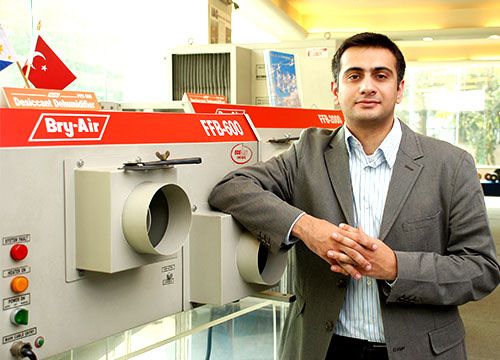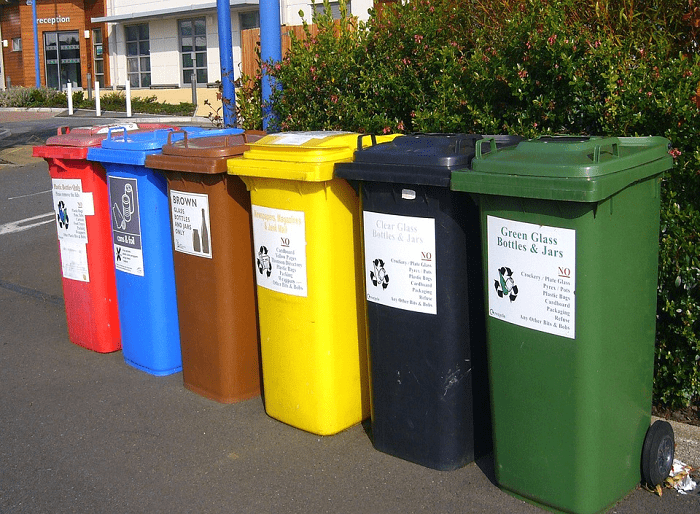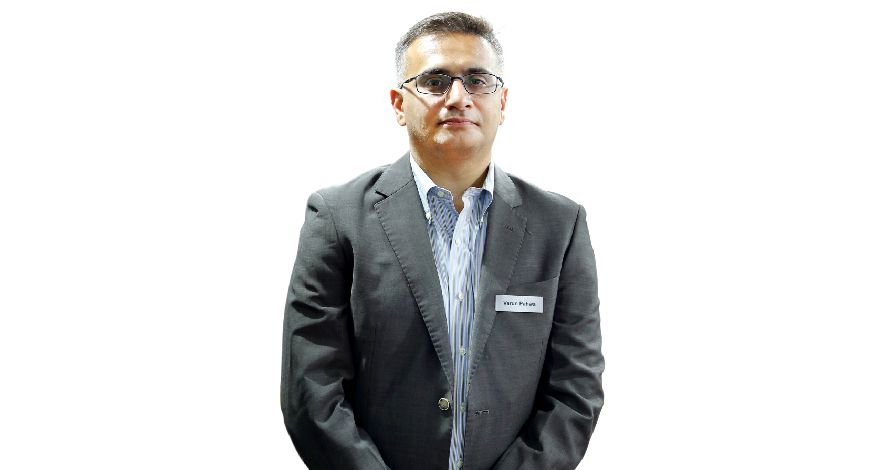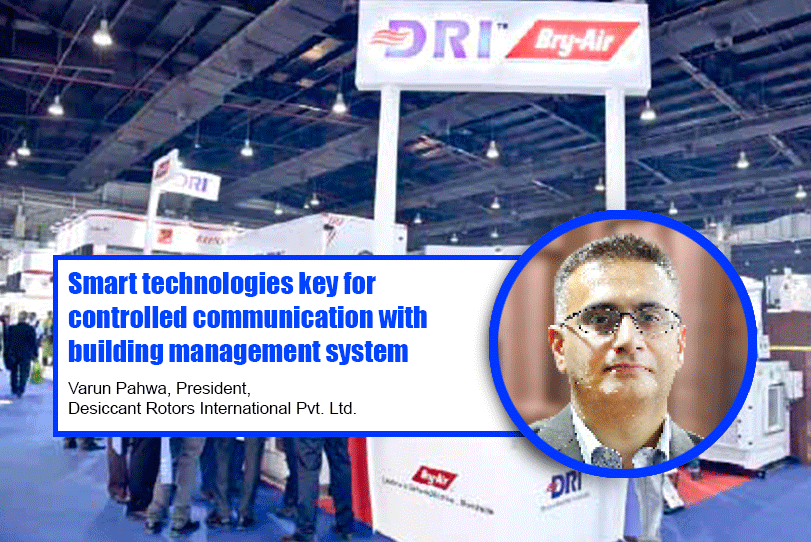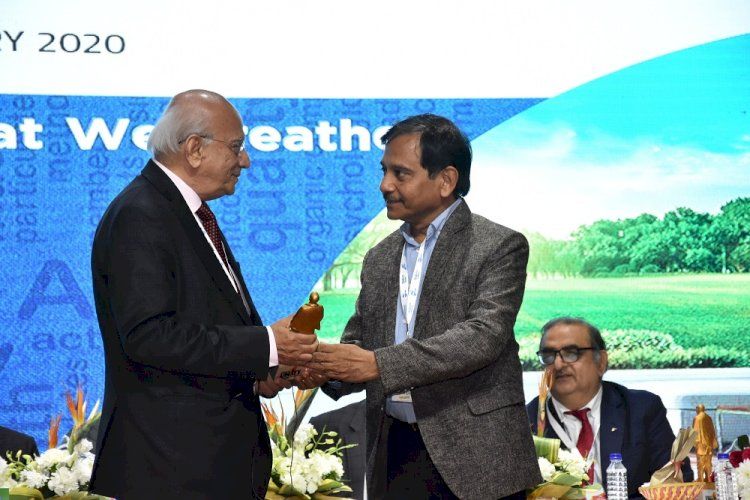- DRI from Pahwa Group is one of the fastest-growing adsorption technology groups in the world today, especially with the increasing focus on energy-smart and green technologies.
- Eco-Cool Evaporative Cooling Pads from DRI uses the simple principle of Evaporative cooling, the ideal and most economical method of cooling.
- By 2021 India can overcome the challenges that the virus has presented economically.
The manufacturing industry in India after almost 45 days of lockdown is resuming its production and business activities under restrictions, and following MHA guidelines. Gurugram based Desiccant Rotors International (DRI), a leading manufacturer in the country is also adapting newer work culture in challenging times. Founded by Deepak Pahwa in 1979 (formerly known as Arctic India Sales) is a global provider of components & systems for Energy Recovery, Indoor Air Quality (IAQ), Evaporative Cooling, Dehumidification & Green Buildings, and is part of Indian Manufacturing Conglomerate Pahwa Group.
In an exclusive interaction with Machine Maker, Varun Pahwa, President of Desiccant Rotors International a very optimistic industry leader towards the current challenges of COVID19, who believes that the future is bright for Indian Manufacturing as well as to his organization, we bring you the excerpts to our readers.
Lockdown & Manufacturing
”Delhi was strictly under lockdown tacking Coronavirus, and traveling was highly restricted. However, our manufacturing facilities are predominantly in the state of Haryana, where there was some relief from lockdown for companies who were into essential services. We got permission to start our manufacturing operations during mid of May 2020. Our units at Udyog Vihar and Manesar industrial area, in the state of Haryana, started operated not in full capacity but partially since we were into the pharmaceutical and hospital segment”, informed Mr. Pahwa.
Desiccant Rotors International (DRI) is a global provider for Evaporative Cooling Pads. Eco-Cool Evaporative Cooling Pads from DRI uses the simple principle of evaporative cooling i.e. passing fresh air through the wet surface to bring temperatures down. Evaporative Cooling with EcoCool Evaporative Cooling Pads is the ideal and most economical method of cooling.
Part of the Pahwa Group, a group of companies in the air conditioning industry, DRI provides products essentially for sustainable green commercial buildings with or without LEED or GRIHA certifications. ”Our product portfolio is respected for catering to environmentally friendly HVAC or environmentally friendly air conditioning. While we are headquartered proudly in India with customer base all over the world; we are manufacturing in India, developing products in India”, said Varun.
Indian Innovation & Technology for the World
DRI previously known as Arctic India Engineering is a homegrown Indian company that made its mark in the high technology areas and well respected all over the world. It’s a perfect example for Making in India, and #AtmanirbharBharat Abhiyan. ”Whenever one introduces an innovative product, something new as a technology, it first takes time for it to get established in the market. However, what we now find is that there is very good acceptability of environmentally friendly products and even in a country like India there is demand”, said Mr. Pahwa.
The innovations take time to get matured in order to be accepted by the Economies however they find that today most of the designers and Architects are demanding such products that are environmentally friendly and are adding value to Energy conservation, and this has become a usual practice in India. Desiccant Rotors International exports all over the world including Canada, the USA, Europe, and China- South East Asia, Japan as well. A proudly Indian manufacturing company DRI is highly acknowledged for its technology and with the clients.
Impact of COVID19, Lockdown & New Normal
”Of course, this virus is something which no one expected. No one was prepared for. This is something that caught pretty much the whole planet by surprise”, responded Varun Pahwa. He said that the situation had a huge economic impact which will take quite a while to overcome. He adds, ”On the other side what is given is nature, two weeks of breathing space again. A lot of human free space, where you can see how nature can repair itself even in a short span and bounce back.”
I think while there is a huge economic loss because of COVID19 situation, there is always something one can learn from it and have some take away for the future on how we have to survive in this with nature
Varun Pahwa
President, Desiccant Rotors International
Varun is very optimistic about the post COVID19 era where most of the companies will have a change in their ecosystems, not only in the short run but also in the long run. He added, ”there will be a shift in the global market from China to India and Vietnam, especially in the Fortune 500, they would be more interested in the manufacturing sector of India that will give a very big hit to the supply chain culture in China”.
”Post lockdown scenario working from home for the employees will be a new norm adapted by the companies”, shared Mr. Pahwa. ”In every adversity, we should look at the ways to handle the personnel, and I as a Company president is doing the same, also this was the time when we were strengthening our company both from the Front End as well as in the Back End.
”Obviously the lockdown period was not evident when we went to lockdown, it got extended and now we are getting back to normalcy with restrictions. I think we were able to utilize this time to our advantage to a lot of assignments, projects, etc. done, which in day to day routine would have taken much longer to complete”, said Varun. He added that this time would be rightly pointed towards research and development, process improvement, quality improvement, and also identifying inefficiencies in operations.
The lockdown time was used as an advantage by DRI, utilizing times for special projects, which normally take a lot of days to get completed. ”Dedicating more time into research during the lockdown period, some of our pending projects got accelerated, and completed within the last 3-4 weeks”, adds Varun. ”On a personal front, I have also accomplished many of my long pending tasks. One has had a chance to strategize and look forward to next year’s roadmap in an undistracted and clear view both from backend manufacturing and operations and front end sales and marketing activities”.
India & Global Business Conditions & Economy
After finishing his Engineering Degree from Bangalore University, Varun did his PostGraduate from The Boston University Graduate School of Management, US before joining the family business and got involved in manufacturing. Varun spoke about his beginning, ”Ours is essentially a mechanical product, however, evolution has taken place, and now we have electrical sensors and electronics onboard our mechanical product. So, our manufacturing is different from other sectors of the automobile where there is repetitive business.”
He adds, ”Lots of processes include our need to order customized so those manufacturing challenges are different. We have a lot of internally developed machines where a lot of our products are technology-intensive. The machinery for this is also developed in house. So, we are from the technology manufacturing point of view quite evolved and also, we believe in vertical integration. So, a lot of our manufacturing is all in house. We do not sub-contract. So this is control of technology and also quality”.
Varun said that we have to be flexible while working in a global market since every country has a different work culture whether it’sAmerica or Japan. ”Looking at various work cultures whether it is of America, Europe or India, I see them changing from the last three years. Being in India I see us as a part of the Global Economy and if we wish to be an export-driven nation then our work culture has to be built on our strength and in no way we can be lagging behind our approach”.
How you work with an American customer may be very different from how you work with a South Korean customer with respect to relationships and our product offering and manufacturing. ”If we have to be an export-driven nation both for the products and service, our work culture has to be built on our strength and in no way can be lacking behind in our approach. I have noticed that India is growing and simultaneously the work culture is also changing and adapting new techniques and strategies. So as the company we have been always global in our approach”, added Mr. Pahwa.
DRI, a truly Indian SME which has global efficiency is having an active customer base in over 40 countries; supplied products to 80 countries. For DRI global work culture is something that is appreciated with much respect, however, the Indian work culture of flexibility and adaptability also brings together certain strengths both in manufacturing and sales. The driving force behind Pahwa Group (L-R) Varun Pahwa, Deepak Pahwa, and Vivek Pahwa.
Growing ahead of COVID19
Coronavirus is of course a very big challenge for us to tackle, and the world economy will have to suffer a couple of years, before coming to normalcy. ”I think first of all my personal view is that we will definitely by the next year 2021 overcome the challenges that the virus has presented economically. People will start getting engrossed in their day to day work and all the economic activities will pick up speed”. Varun believes once the sectors which are essential and then the sectors which have spending like consumer luxury goods, malls the demand will start growing.
”For us luckily we have quite a good customer base in the pharmaceutical sector, food sector and healthcare, and hospital sectors. We do see that there will be a growing demand in these sectors in the coming months once the economy not only in India but globally gets better. So we are very optimistic and would like to adopt a very optimistic view”. Varun said that there will be a short term hit across the globe, but in the long term, all these sectors will be more positive for DRI. About the support from the Government in the Manufacturing Sector, Varun replied that there will be many companies that are going to run out of cash may be in the upcoming months and the Government must plan some hand holdings to these companies so that their businesses don’t fail.
India would be a key alternate to China for manufacturing and that would also present more opportunities for India. The manufacturing sector in India is on a turn when it comes to using resources to manufacture products, it is manifest that they are using the environment-friendly tools that are a very Positive Sign for the Indian Economy.
Introducing Dehumidification & Pahwa’s Incredible Journey of 4 Decades
In 1979 the Arctic India Sales was set up by Deepak Pahwa, father of Varun Pahwa. Deepak Pahwa is the Chairman, Pahwa Group, and Managing Director of Bry-Air (Asia). The Pahwa Group, where innovation is life, is the fastest-growing Adsorption Technology Group in the world. Under his leadership, the group has filed 123 patent applications for 13 new technologies, at the national and international level, 46 patents granted/ already allowed. In 1979, he set up the first company in the group, Arctic India Sales, introducing dehumidification in India. Subsequently, he set-up Bry-Air (Asia), Desiccant Rotors International, Delair India and Technical Drying services.
The man behind the success of the Pahwa Group, Deepak Pahwa is an alumnus of IIT-BHU, has been honored with several awards, including the “Leadership Award 2013” by IACC, “National Award 2011 in Research & Development” in (Medium Enterprise) by MSME, “IIT-BHU Alumni Lifetime Achievement Award 2009-10”, and also the “Entrepreneur Of The Year Award” in 1987 in the SME entrepreneur category.
The core strength of all the group companies is concentrated on desiccant and desiccant-based technologies. Operating within a broad framework of ‘environment and energy’, the group companies are involved in manufacturing products to various industries like pharmaceuticals, chemicals, textiles, manufacturing, machinery, plastics, etc. which makes them the industry leaders. Companies like Pahwa Group are one of the fastest-growing adsorption technology groups in the world today, especially with the increasing focus on energy-smart and green technologies.
Air Cleaner for the Future Generations
DRI – Pahwa Group, has been a leader in offering advanced environmental control solutions to a wide array of companies. The core strength of all the group companies is concentrated on desiccant and desiccant-based technologies. Operating within a broad framework of ‘environment and energy’, the group companies are involved in manufacturing products to various industries like pharmaceuticals, chemicals, textiles, manufacturing, machinery, plastics, etc. which makes them the industry leaders.

